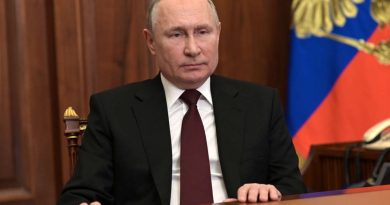Black Sea Deal Shifts Regional Dynamics
Elijah Novak
Staff Writer
On March 25, the United States announced that a deal was brokered at the peace talks in Riyadh that would eliminate the use of force in the Black Sea. The Black Sea is a critical shipping lane, particularly for the exportation of grain from Ukraine. Research conducted by the World Development and agronomist Stephen Devadoss shows that Ukrainian grain exportation is critical to regions such as Africa, the Middle East, and Asia, whose dependence on grain from Ukraine can be up to 60 percent of all grain imports. The critical shipping lanes in the Black Sea have been involved in key conversations in peace talks. In July of 2022, a Turkish-mediated negotiation was held in hopes of removing violence and economic disruption of commercial vessels in the Black Sea, but it was later rejected by Russia a year later. Now, U.S.-mediated peace talks have initiated what could possibly be a complete removal of violence for the Black Sea.
The deal’s critical tenets involve the creation of the Black Seas as a region that “ensures safe navigation, eliminates the use of force, and prevents the use of commercial vessels for military purposes in the Black Sea,” reports the Associated Press. When Moscow withdrew from the 2022 deal, it claimed that Russian commercial shipping did not receive the same benefits as its Ukrainian counterparts. The U.S. has stated that, to keep both parties satisfied, it will help restore Russian agricultural and fertilizer shipping to global markets, as well as lower maritime insurance costs, and enhance access to ports and payment systems for such transactions, reports Al Jazeera.
Yet, this still was not enough for the Russian authorities. In addition, they demanded that sanctions be lifted on Rosselkhozbank, a major agricultural financial institution, and other financial organizations and companies involved in the international food trade and the agriculture sector. Russia also demanded that its banks be reentered into the SWIFT international payment system. SWIFT, which removed seven Russian Banks since the start of the war, is a critical international organization that allows the efficient transfer of funds to and from banks and organizations across international borders, reports Reuters.
Putin’s economic envoys and many members of the Kremlin see this as a major shift toward peace and the initiation of a more stable global food industry, reports the Associated
Press. However, the hefty demands by the Kremlin leave some Ukrainian leaders worried that empowering Russia commercially within the Black Sea could lead to the continuation of the war.
The three-year war has become stagnant over the last year, as the front lines have seen limited changes. Although President Zelensky has expressed a desire for peace on X, he is worried that Russian duplicity in honoring agreements might make peace more difficult to achieve. Ukraine is demanding harsher sanctions and severe punishment from the West if Moscow breaks the deal. Some Ukrainian officials feel that the new Black Sea negotiations are simply opening a crack in the Ukraine-Western alliance for Putin to exploit, reports BBC News.
The removal of sanctions would enfranchise Russian oligarchs and increase Russian economic dominance in the agri-business. A Ukrainian official stated that, “Any easing of sanctions directly benefits the system fueling Russia’s war.” Most worrisome is the loosening of sanctions on the Russian chemical industry, which is directly tied to the Russian military industrial complex. Although Russian fertilizer has reentered European markets, the removal of sanctions on the entire chemical industry will only lead to increased capability for weapons and explosive constructions, reports The Kyiv Independent. The question of Russia’s capacity to ensure a long-lasting peace around shipping in the Black Sea has become a critical concern for the Ukrainian government. Not wanting to empower Russia through the removal of sanctions while attempting to move toward peace has created a complex pathway for Ukraine.
The Black Sea Deal aims to provide a more secure trade route and reopen the region to commerce at levels seen before the war. Yet some analysts warn that the terms of the agreement could complicate future negotiations. The long-term impact of the deal, whether the Black Sea agreement contributes to lasting peace or has unintended consequences, will only become clear through the future actions of the nations and the longevity of the deal.
Image courtesy of Getty Images.


